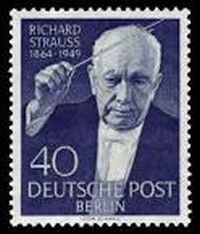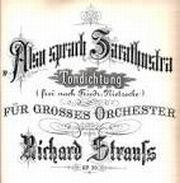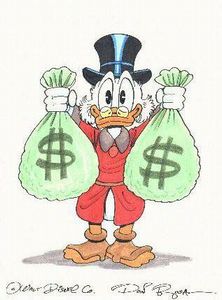ブログの日本語訳もTimothy自身のものです!
Today I'd like to share with you one of my favorite composers of the Romantic era.
今日は、僕のお気に入りのロマン派の作曲家を紹介したいと思います。
Richard Strauss was a German composer who lived from 1864 to 1949. He is widely regarded as the leading German composer of late-Romantic and early-Modern music.
リヒャルト・シュトラウス(1846-1949)はドイツを代表する後期ロマン派・初期モダン派の作曲家です。

He was considered one of the last great Romantics who began his career as a progressive composer and ended a conservative.
His first major success was with his tone poem "Don Juan.
" This piece was such an innovative work at the time that, at its premier performance, half the crowd applauded while the other half denounced it as heretical.
キャリア当初は革新的傾向が強く、出世作ともいわれる交響詩『ドン・ファン』の初演時には聴衆の半数は喝采したものの、残り半数からは野次が飛んだほどです。
しかし、晩年にはすでに古風の作曲家と見なされ、ロマン派の最後の作曲家ともいわれています。
He lived when music was drastically changing and composers started experimenting with avant-garde styles and techniques to 'expand the limits' of Western music.
彼が生きた時代は西洋音楽が変容していた時代で、様々の作曲家が新しい音楽を創ろうとモダン音楽・アヴァンギャルドの作曲法を駆使し始めた時代でした。
He is probably best known for his tone poem "Also sprach Zarathustra," an orchestra piece used famously in the introduction to Stanley Kubrick's film "2001: Space Odyssey."
彼のもっとも有名な作品といえば、交響詩『ツァラトゥストラはこう語った』かもしれません。
この曲はスタンレー・キューブリックの映画『2001年宇宙の旅』のイントロで使われたことで広く知れ渡りました。

Today I'd like to talk about one of his last pieces titled "Four Last Songs."
The songs deal with death and were written shortly before Strauss himself died.
However, instead of the typical Romantic defiance, these Four Last Songs are suffused with a sense of calm, acceptance, and completeness.
今日僕が紹介したい作品は『4つの最後の歌』です。
この作品は、シュトラウス自身が他界する寸前に書かれたもので、テーマは「死」です。
ロマン派の作曲家によくみられる勇敢な抵抗とは裏腹に、この作品は平隠・受け入れ・至福を感じさせます。
The settings are for a solo soprano voice given remarkable soaring melodies against a full orchestra, and all four songs have prominent horn parts.
The combination of a beautiful vocal line with supportive brass accompaniment references Strauss's own life:
His wife Pauline de Ahna was a famous soprano and his father Franz Strauss a professional horn player.
ソプラノとオーケストラのために書かれたこの曲は、美しい歌声と印象的なホルンパートが特徴です。
この歌声とホルンパートの組み合わせは、シュトラウス自身の人生そのものを照らし合わせたものだと言えます。
彼の妻は有名なソプラノ歌手パウリーナ・デ・アーナ、父はプロのホルン奏者でした。
Here are the lyrics for the first song, written by Herman Hesse:
In shadowy crypts
I dreamt long
of your trees and blue skies,
of your fragrance and birdsong.
Now you appear
in all your finery,
drenched in light
like a miracle before me.
You recognize me,
you entice me tenderly.
All my limbs tremble at
your blessed presence!
一つ目の歌の歌詞がこちらです(ヘルマン・ヘッセ作)
うす暗い谷で
私は永く夢見ていた
あなたの木々と青い空を
あなたの匂いと鳥の歌を
今、あなたは私の前に
輝き、
華やかな装いで
光を体に浴びながら
奇跡のように立っている
あなたはもう一度私を見つけ
優しく私を抱く
私の四肢が震える
あなたの素晴らしい存在に!
The 1964 recording by Elizabeth Schwarzkopf is probably the best out there,
her singing is absolutely stunning and will send chills down your spine!
僕がおすすめするのは、1964年に録音されたソプラノ歌手エリザベート・シュワルツコフの録音です。
彼女の歌声はとても美しく、鳥肌が立つほど優雅に歌います。
Here is a youtube link:
Hope you enjoy it!
Timothy



















